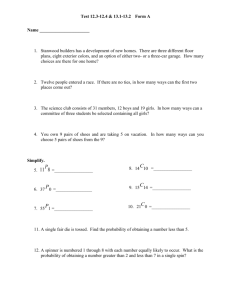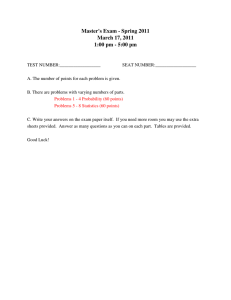MTH 232 Section 14.1 The Basics of Probability
advertisement
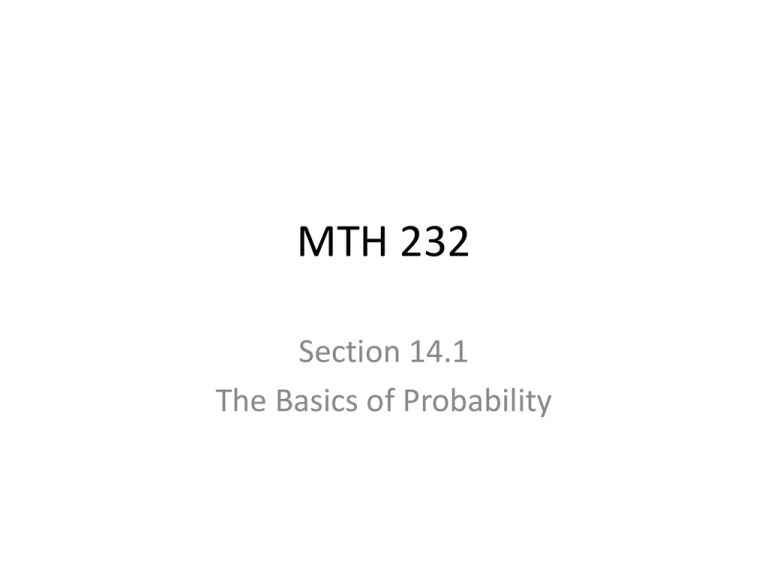
MTH 232 Section 14.1 The Basics of Probability Overview • Probability is the mathematics of uncertainty, in which the likelihood that a chance event occurs is measured by a number between 0 (no chance of occurring) and 1 (must certainly occur). Students in grades 3 – 5 should begin to learn about this measurement. • Previous to this, students will have begun to describe events as certain, likely, or impossible. • Students should explore probability through experiments that have only a few outcomes (spinners and dice). • They should use common fractions to express probabilities that are neither certain nor impossible. Important Terms • Experiment – something that takes place for which what will happen is uncertain • Outcome – a possible result • Sample space – the set of all possible results • Favorable – what we would like to see happen • Unfavorable – what we would not like to see happen Examples • For each experiment below, find the sample space: 1. Rolling a fair die 2. Spinning the spinner shown below 3. Tossing a coin 4. Tossing two coins Probability Ratio • The probability that an event E occurs is the ratio of the number of ways that E can occur to the number of elements in the sample space S: n( E ) Pr( E ) n( S ) Examples • A penny, a nickel, and a dime are tossed. Find the probability of getting exactly 2 heads. • A green die and a red die are tossed. Find the probability that the sum is: a. 7 b. Less than 4 c. 13 More Examples • A card is drawn from a standard deck of 52 playing cards. Find the probability that the card drawn is: a. Black b. The queen of diamonds c. A face card or a club d. A face card and a club Yet More Examples • Recall the age data from our previous class. a. What is the probability that a randomly selected person is legal drinking age in the state of Alabama? b. What is the probability that a randomly selected person is over 30, given that the person is of legal drinking age? Almost Done One M&M is chosen at random. a. What is the probability that it is orange? b. What is the probability that it is yellow, given that it is a primary color? c. What is the probability that is a primary color, given that it is yellow? d. What is the probability that it is purple? Modified Homework • 1 – 10, 14, 16, 32, 34, 35, 36
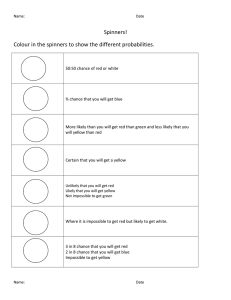
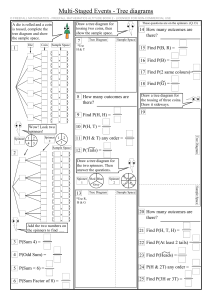
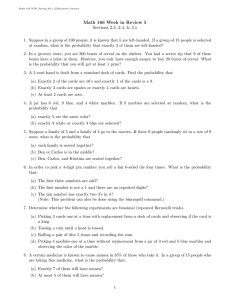
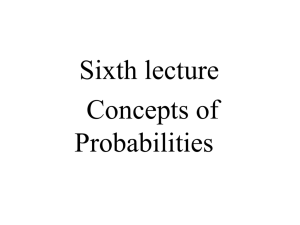
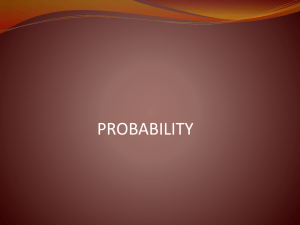

![MA1S12 (Timoney) Tutorial sheet 9c [March 26–31, 2014] Name: Solution](http://s2.studylib.net/store/data/011008036_1-950eb36831628245cb39529488a7e2c1-300x300.png)
